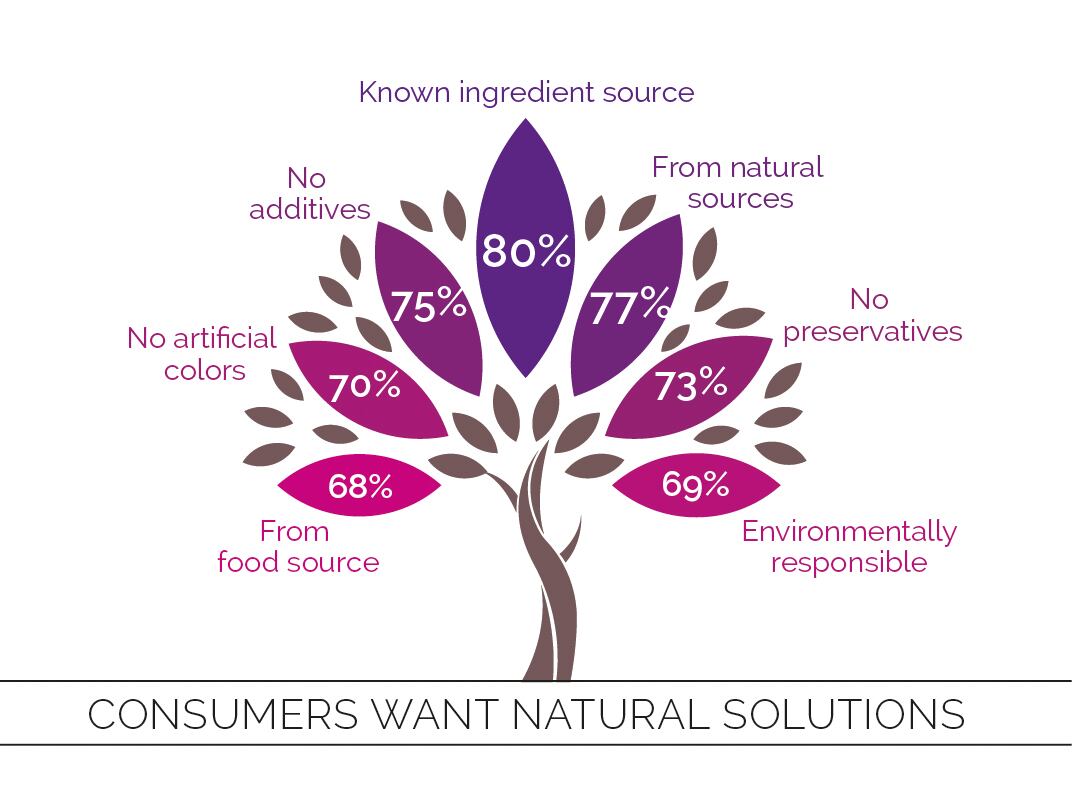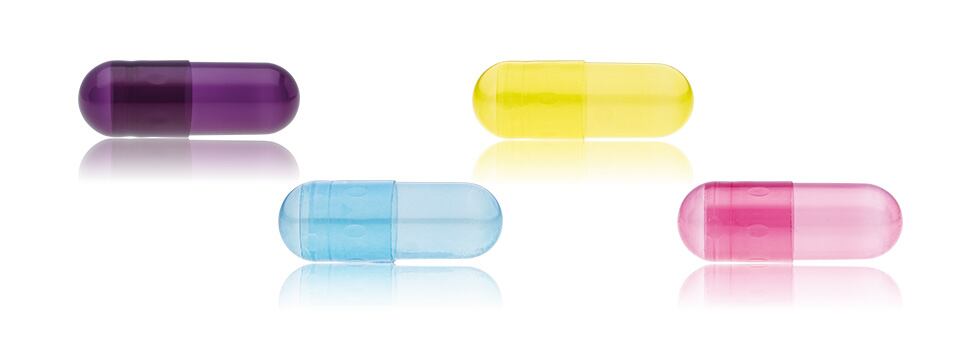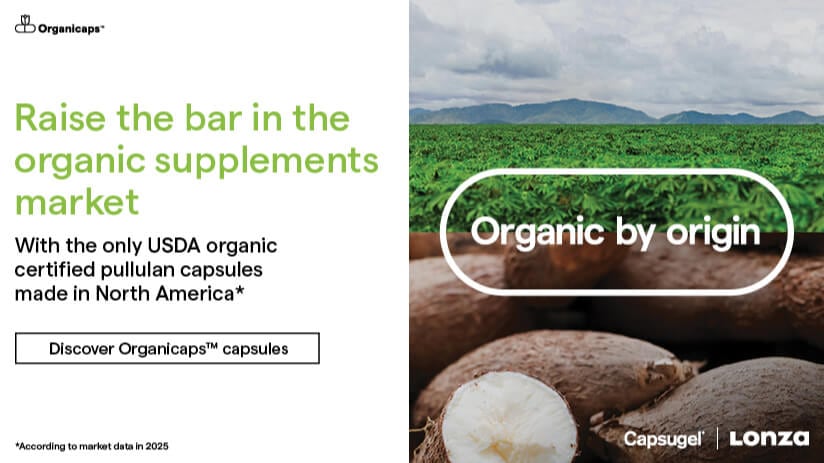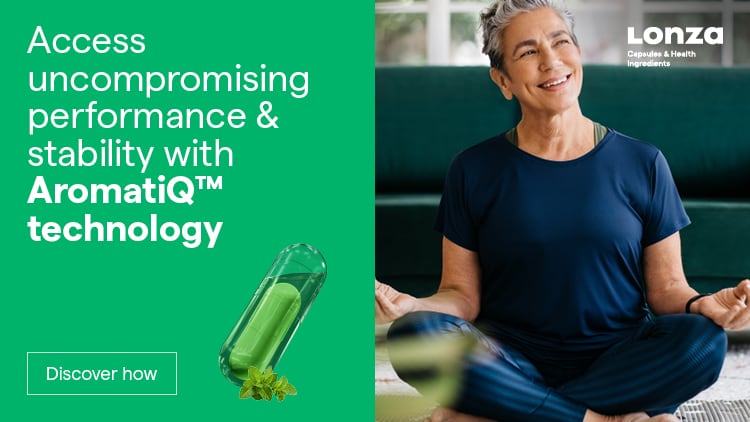With the clean-label movement continuing to gain momentum, we spoke to Stephane Vouche, Marketing Manager at Lonza Consumer Health & Nutrition to find out what “clean-label” means to today’s “green” consumers, and how brand owners and manufacturers can stand out in this competitive space.
1. What is clean-label and what does it mean?
The clean-label trend continues to grow and evolve and, in doing so, it has become a consumer-driven movement that demands transparency and traceability throughout the supply chain. As shoppers become more aware of the impact the products they purchase have on the environment as well as their own health, they are seeking food supplement products that are made from more natural, familiar ingredients with easy-to-understand stories.
Indeed, the growth of the clean-label trend is reflective of the growing number of supplement consumers who want to be confident that they are making informed purchasing decisions, where they feel positive about their consumption choices.

Simultaneously, while the trend encompasses a wholesome and natural position towards consumer relevant attributes, clean-label is still connected to its roots. The elimination of additives and other unfamiliar ingredients from labels remains an important purchasing motivator for the modern consumer.
2. How can supplement manufacturers meet the needs of today’s consumers?
It is essential that food supplement brands know how their materials are sourced in order to appeal to today’s “green” consumers, whose core purchasing drivers are transparency and traceability, as well as sustainable consumption choices.
While ingredients are the obvious element to consider, it is also important that manufacturers do not overlook the value of the dosage form that delivers the actives, in order to meet on-pack claims and create a truly clean-label product. Able to contain, protect and control the release of a spectrum of ingredients, capsules are an ideal delivery system for manufacturers.
Vegetarian capsules, in particular, are clean-label by design and can cater to a variety of positionings. Lonza’s Capsugel range of Vcaps Plus vegetarian capsules, for instance, are made from hypromellose and water only and are plant-based, free-from additives and also offer an effective, zero plastic solution for supplement manufacturers to meet the needs of discerning consumers.
3. How can they stand out and differentiate their products?
While it is crucial for manufacturers to be responsive to the latest consumer trends, the demand for food supplements with visual appeal is also growing to help brand owners create products that stand out in a highly competitive market space. Color is a powerful tool for doing this and plays a significant role in shaping consumer perceptions of products, as well as helping to build a unique brand identity. Manufacturers are increasingly looking for ways to introduce vibrant colors to capsule shells, however, until recently, this was not possible without the addition of E-numbers.
The latest extensions to Lonza’s Capsugel portfolio of Vcaps Plus vegetarian capsules are bringing color to the clean-label experience, thanks to the potential of coloring foodstuffs derived from fruits, vegetables and edible plants. The primary physical processes used to extract the color from these foods do not require the addition of additives or solvents and therefore, support a clean-label positioning and provide the opportunity to tell a positive product story. The first of these next generation clean-label solutions to be marketed worldwide is the Vcaps Plus Purple Carrot capsule, which enables supplement manufacturers to choose a distinct shade of purple when selecting the Vcaps Plus capsule, providing a unique aesthetic experience for brands and consumers alike. These proprietary capsules can now be tinted with Blue Spirulina, Spicy Yellow and Red Radish colors to help brands stand out and appeal to the latest consumer preferences.
Safety is also a fundamental priority for today’s supplement consumers and, in order for it to be evidenced, products must be extensively tested and routinely re-evaluated. Ingredients like titanium dioxide, a food additive recognized for its role as an opacifier, are under increased scrutiny from the scientific community following research that highlighted potential health risks associated with its nanoparticle form.
In order to deliver a safe, yet desirable aesthetic appearance when using ingredients with opacifying properties, Lonza has developed the Vcaps Plus White Opal capsule. The Vcaps Plus White Opal capsule is free-from titanium dioxide and meets a variety of consumer demands such as vegan, vegetarian and plant-based positionings, while creating a semi-opaque, white look that is safe and enables brand owners to communicate a positive story to the consumer.
4. What support is out there to help make the clean-label transition?
The clean-label trend is here to stay and so it is important that food supplement brands are responsive and adapt to deliver these requirements. It can, however, be challenging to make the leap to clean-label formulations with limited knowledge and experience. For this reason, leaders in the industry and the clean-label field, including Lonza, joined forces to form the Clean Label Alliance.
The Clean Label Alliance uses their combined breadth of expertise and knowledge to help food supplement companies to overcome the complex formulation and production challenges associated with clean-label solutions, and support their transition towards cleaner and clearer labels.






